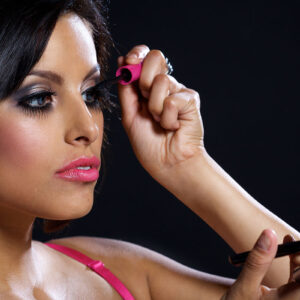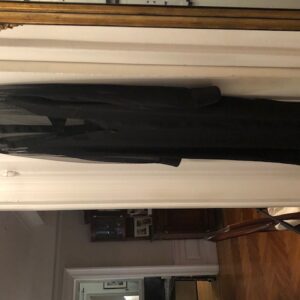We’ve all seen an episode or a movie of the classic “Zorro” at some time or another and we’ve probably wondered at the mystique of the mask, which is so powerful and transformative that when Don Diego de la Vega puts it on to become “Zorro,” he becomes unrecognizable to his own father.
Thanks to Covid-19, now we’re all going around in “disguise” and while we’re not as totally incognito as Don Diego, it’s not unheard of that your friend may pass by you on the street without recognizing you. Even just the phrase “wearing a mask,” brings to mind an attempt to hide our true identity. For the last year or so, however, wearing a mask has not been our choice or our attempt to hide who we are, it’s for survival. What’s more, life during Covid has introduced a lot of other factors that make me wonder if I’m still the same person I was before.
Identity is defined as: “Who a person is, or the qualities of a person or group which make them different from others”, it follows then that any thing or condition that blurs our difference from others also undermines our identity. When a mask hides half of your face it becomes harder to recognize personal differences. Add a cap and glasses, as so many of us do, and we can become a mere outline of a human being. In fact, maybe even unrecognizable.
It’s not a stretch to say that since Covid has changed the way we live and work, the lifelong habits that made us who we are have undergone radical changes, not only because we need to hide behind face coverings, but in ways that are even more sweeping. Since more than 75% of the population is now working from home, Covid has changed human relationships. Going to work in a physical environment, let’s call it an office, comprised a whole set of behaviors from the time you got out of bed to the time you got back home. Self-presentation is a huge part of personal identity. This involves taking a shower, styling your hair, choosing your outfit for the day, socializing at your work place and generally acting out your role in public.

Now that we’re working from home, most of these former behaviors have become unnecessary. Why take a shower, some people say, if you’re not going to come into contact with others? We all know some who participate in the ZOOM meeting in their pajama bottoms, and if your job doesn’t entail any virtual meetings, you can spend all day in the full pajama and slippers look. Nor do you have to bother to wash and style your hair or put your makeup on.
The problem with this scenario, aside from the lack of respect you show for your family if you don’t live alone, is that our previous activities were critical to building and reinforcing personal identity. We can agree that self-presentation is in itself a mask of sorts, but one that is a fundamental part of who we wish to be—or at least who we wish the world to think we are.

Identity formation is the bedrock of psychology and there are many theories about how we become who we are. Two stand out, one of these advanced by Erving Goffman, who devised the theory of self-presentation as dramaturgy. In his view, we are actors on the stage of our own theater, and we script a role for ourselves through “impression management”.
“…[T]he individual develops identity or persona as a function of interaction with others, through an exchange of information…” The key words here are interaction with others. Self-presentation does not imply solipsism, it requires an actor and an audience.
The second of these theories, the “Looking-glass Self” theory, underlines that “self-concept is built not in solitude, but rather within social settings. In this way, society and individuals are not separate…”.
What happens then when we lose the daily feedback provided by the social environment of a workplace that would normally constitute our “audience” and reinforce our self-image and personal identity?
This is probably even more notable for women, because their self-presentation is a more complex process than it is for men, involving more varied choices in makeup and clothing style selection. After all, isn’t makeup already a kind of mask that contributes heavily to the construction of the persona that we want to present to the world? And clothing our armor? It’s a cliché to say that a woman feels naked without her makeup, but it’s nevertheless true at a deeper psychological level.
Speaking from personal experience–and feel free to call me shallow if you wish– I sorely miss my wardrobe. As I prepared for work each day to teach at my college, I could choose what part of my personality I wanted to express that day.
Did I feel mysterious and sophisticated? Go for the black on black. How about girly and casual? Sporty and active? All possibilities. Now that I work from home I’m no longer “performing” in front of my audience of 30 students. I dress for my daily run and yoga instead because as I’m working at my computer–as I’m doing just now as I write this– no one can see me and make any determinations about who I am based either on my interactions or on how I’m presenting myself today.

Later on, when I go out, I’ll wear a cap, sunglasses and mask. My own family won’t know me. This is such a widespread trend during Covid that on the days when I decide to wear “real clothing,” maybe to go shopping, I stand out as if I were dressed for a ball.
Of course, it’s not only about the workplace. The fact is that nowadays, during the Covid restrictions we don’t even interact with family and friends. There are no parties or gatherings, no theater events, not even going out to dinner.
My wardrobe languishes in my closets. I know I’m not alone in this, some of my friends feel even more strongly than I do. I have one friend who rotates her favorite outfits by just taking them out of the closet and hanging them on a door—just to enjoy looking at them and sighing for the time when once again she can be the woman that she used to be before Covid put us all in disguise.












